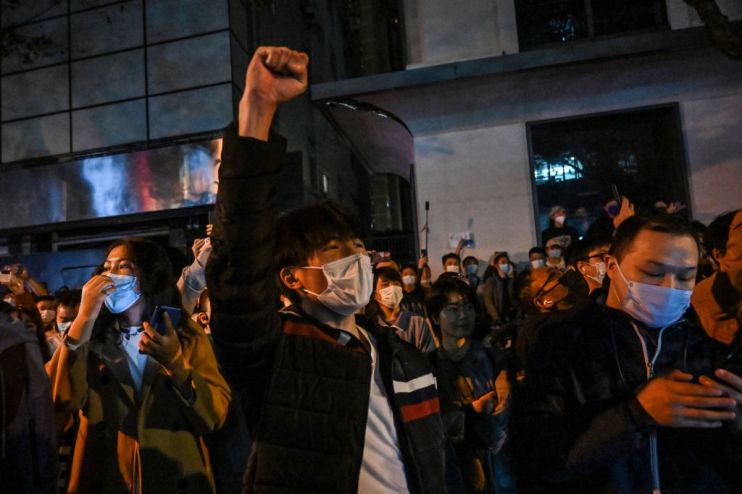Number 10 hits out at China for ‘shocking and unacceptable’ arrest of BBC journalist

The arrest of a BBC journalist by Chinese authorities in Shanghai has been branded as “shocking and “unacceptable” by Number 10.
Rishi Sunak’s official spokesman today said that “journalists must be able to do their jobs without fear or intimidation” and that the Foreign Office is making inquiries.
BBC journalist Ed Lawrence was beaten and arrested by Shanghai police yesterday, while reporting on anti-government protests railing against the country’s zero-Covid policy.
Lawrence was released after several hours, with Chinese authorities first claiming he was arrested for not presenting his press credentials and then later saying he was detained to protect him from catching Covid.
A BBC spokesperson said these claims by the Chinese government were not “a credible explanation”.
Number 10 said: “The arrest of this journalist … is shocking and unacceptable. Journalists must be able to do their jobs without fear of intimidation.”
Foreign secretary James Cleverly said the incident was “deeply disturbing” and that “media freedom and freedom to protest must be respected”.
A BBC spokesperson said: “The BBC is extremely concerned about the treatment of our journalist Ed Lawrence, who was arrested and handcuffed while covering the protests in Shanghai.
“He was held for several hours before being released. During his arrest, he was beaten and kicked by the police. This happened while he was working as an accredited journalist.”
Protests have broken out across China, after claims the government’s strict Covid rules prevented residents from escaping a burning Xinjiang block of flats which killed 10 people.
Beijing has maintained its strict Covid-zero policies, with mandatory self-isolation for positive cases and rolling lockdowns in place across the country.
Kevin Rudd, former Australian Prime Minister and one of the world’s leading China experts, said the protests are “unusual and significant”.
He said there was evidence to suggest “there is an argument that this is now a metaphor for a much broader set of, shall we stay, distrust on the part of the Chinese people about different aspects of what Xi Jinping’s regime is doing”.
“This seems to be general, it seems to be across multiple cities at once. It doesn’t seem to be coordinated, it seems to be spontaneous,” Rudd said.
“The open question … is what now will the regime do to manage it?”